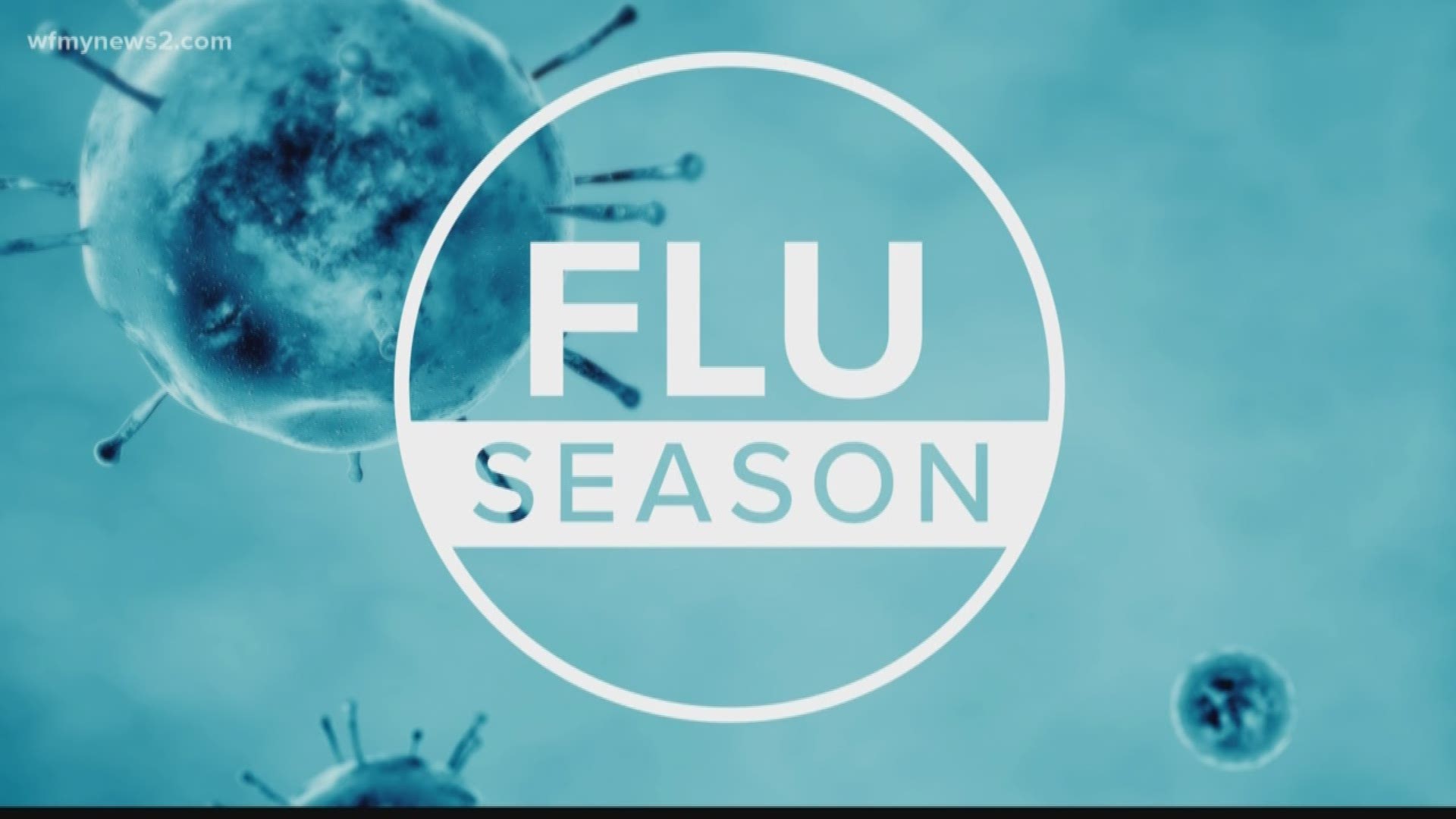RALEIGH, North Carolina — State health officials say six people died from the flu in North Carolina last week, raising the death toll for the season to 16.
The N.C. Division of Public Health said Thursday four of the six flu victims were ages 65 and older, with the other two in the 50-to-64 age group. Of the total, 12 flu victims were 65 and older.
The flu season officially began Oct. 1 and typically runs through March 31.
Meanwhile, to prevent the spread of the flu, UNC Rex Hospital in Raleigh and UNC Hospitals in Chapel Hill and Hillsborough say children aged 11 and under can no longer visit patients. Last month, Cape Fear Valley Health implemented a policy restricting children under age 12 from visiting the hospital.
In Greensboro, Cone health officials said they haven't reached a threshold for restrictions at this time but could if the flu season gets worse.
Flu Prevention Tips from the CDC:
Avoid close contact.
Avoid close contact with people who are sick. When you are sick, keep your distance from others to protect them from getting sick too.
- Stay home when you are sick.
If possible, stay home from work, school, and errands when you are sick. This will help prevent spreading your illness to others.
- Cover your mouth and nose.
Cover your mouth and nose with a tissue when coughing or sneezing. It may prevent those around you from getting sick. Flu and other serious respiratory illnesses, like respiratory syncytial virus (RSV), whooping cough, and severe acute respiratory syndrome (SARS), are spread by cough, sneezing, or unclean hands.
- Clean your hands.
Washing your hands often will help protect you from germs. If soap and water are not available, use an alcohol-based hand rub.
- Handwashing: Clean Hands Save Lives
Tips on hand washing and using alcohol-based hand sanitizers - It’s a SNAP Toolkit: Handwashing
Hand washing resources from the It’s A SNAP program, aimed at preventing school absenteeism by promoting clean hands. From the School Network for Absenteeism Prevention, a collaborative project of the CDC, the U.S. Department of Health and Human Services and the American Cleaning Institute.
- Avoid touching your eyes, nose or mouth.
Germs are often spread when a person touches something that is contaminated with germs and then touches his or her eyes, nose, or mouth. - Practice other good health habits.
Clean and disinfect frequently touched surfaces at home, work or school, especially when someone is ill. Get plenty of sleep, be physically active, manage your stress, drink plenty of fluids, and eat nutritious food.

